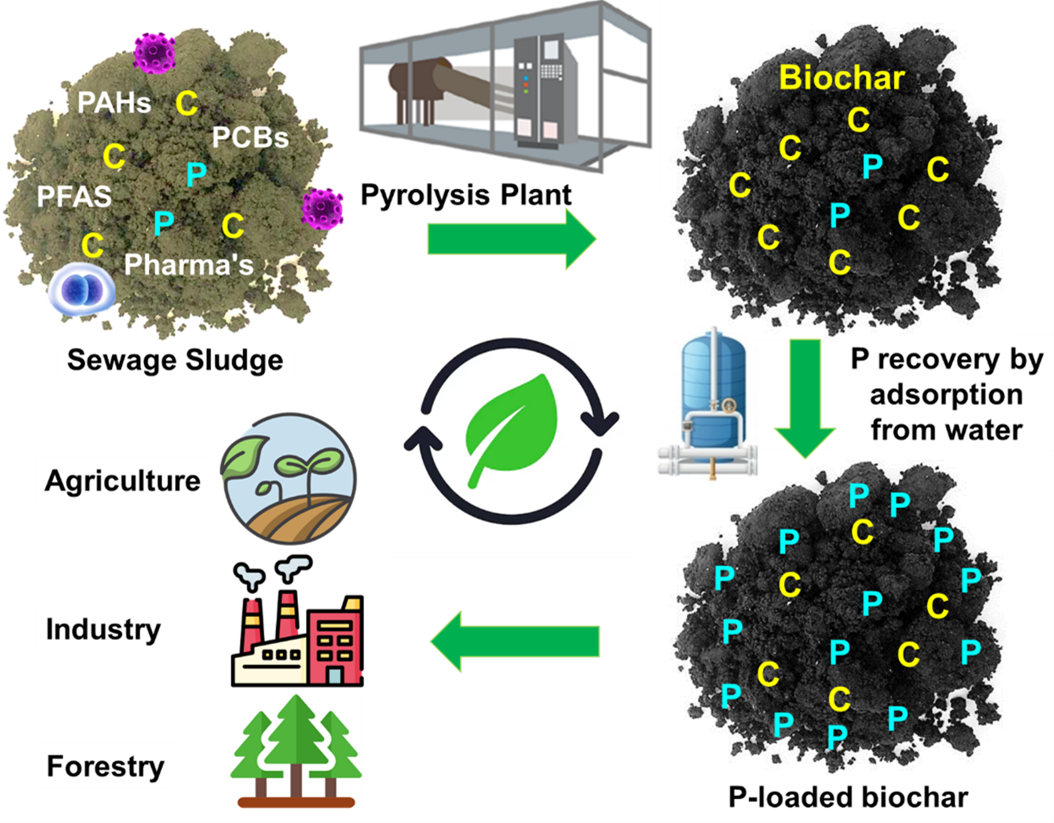Research Paper
How can sewage sludge help to tackle toxic algal blooms in waterways?
ERI’s new paper from the Pollution Group looks at biosolids (sewage sludge)-based biochar to address water pollution. The team developed an innovative water filtration solution using carbon "sponge" biochar that captures phosphorus from water, even at low levels. Made through a straightforward heating process, this eco-friendly material cleans waterways and could boost agriculture.
Algal blooms are a widespread problem often caused by excessive quantities of nutrients in the water. Reducing the amount of phosphorus in lakes and rivers can prevent eutrophication, and if the phosphorus can be recovered, it becomes available as a resource elsewhere.
Additionally, human biosolids are another problem with limited disposal options in Scotland. Land disposal will be outlawed by 2030 given the potential presence of chemical contaminants and/or antimicrobial resistant bacteria and genes, which could harm the wider environment. The new DEFRA report recommends reducing sewage sludge recycling to land by either 50% or 95%, as a cost-effective measure to tackle pollution. Additionally, the new Circular Economy (Scotland) Act 2024 supports all solutions with a particular aim to eliminate waste – by design - within which products are optimised to be reused, restored or returned..
The new research paper can be accessed here: https://authors.elsevier.com/sd/article/S2214-7144(25)01026-8

